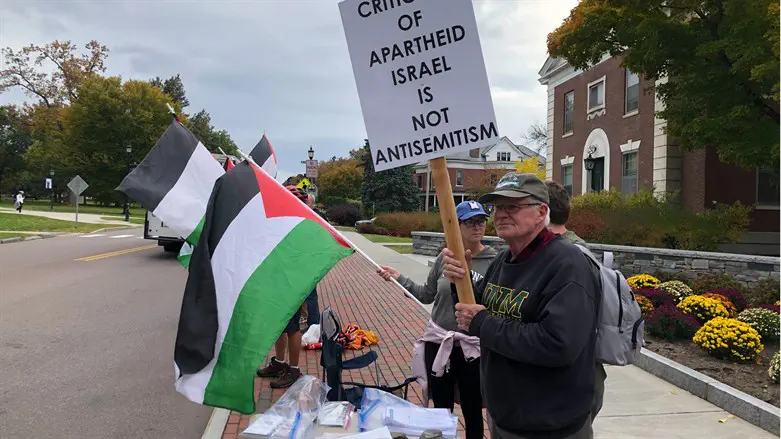
Daniel Asiais president of the Center for American Culture and Ideas and a composer and professor of music at the University of Arizona.
(JNS) This is a tough time for American Jews. Antisemitism has erupted to an unprecedented extent. We thought we were at home in America, but no such luck.
A few months ago, following the Oct. 7 massacre, a friend who is a major donor to Jewish, Israeli and American organizations said to me that Jews might have to leave America, just as we have left—willingly or unwillingly—many countries in the past. Another friend told me that he and all of his liberal friends are being forced to rethink what it means to be a liberal Jew in America.
At the university where I have taught for 35 years, our president took two tries to muster up the correct response to a genocidal massacre. The dean of the college of fine arts dedicated the entire school to fighting “systemic racism” on the day after the death of George Floyd, but has said not a word about the rise of antisemitism on campus and its effect on Jewish students and faculty. Neither has his DEI officer. Not one of my colleagues has expressed sympathy or asked how my friends and family in Israel might be faring in the face of war.
We know that almost all American universities have been conquered and occupied by the left and that alternative voices have been silenced or simply expelled. This is appalling, but not a surprise. The Nazis, for example, easily took over Germany’s universities. Most professors simply want to be left alone to do their research and can’t be bothered to face down evil in their own backyards.
Before the Nazis, the Polish intelligentsia let down their Jewish brethren following a series of pogroms of 1919. In response, the poet Leib Jaffee wrote in his newspaper Die Yiddishe Zeitung:
What was Polish society doing, what was Polish society saying when the Jewry of Vilna was agonizing in its blood? Where was the Polish intelligentsia? Did the bleeding, humiliated Jews of Vilna hear a single voice of sympathy and protest from the side of the Poles? Some individual Poles did, it is true, come to the defense of certain individual Jews. There were cases too of Polish priests defending, at the risk of their lives, the Jews of little villages round Vilna. But where was the Polish social body as such? Where was an appeal to be seen or a newspaper standing up against these events? … Perhaps the hardest thing to bear these days has been the loneliness, the abandoned condition in which we found ourselves.
The number of deaths in each pogrom was less than one hundred. And unlike Hamas, the Polish people didn’t formally adopt the idea of exterminating all Jews. Yet the reaction of the American intelligentsia and its progressive foot soldiers has been even worse than that of their Polish predecessors. It appears that they cannot understand that they are making themselves collaborators with genocidal antisemites. Or can they?
American Jews will have to reassess their place in American society. They must do so as soon as possible. While a few presidential heads have rolled at Harvard and UPenn, the administrative rot that caused the current eruption of campus antisemitism continues to spread.
This is not a time for retreat. Instead, we must bring our concerns to the fore in every communal, social and educational forum to which we belong. We are in a battle for the life of American Jewry and the Western civilization we helped to found. The civilization of which America, as long as we will it and fight for it, is still a part.